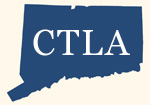
We will do our part to make sure that you get the best legal representation possible.

CT Trial Lawyers Association


State of CT Judicial Branch
|
Ch. 7 vs. Ch. 13 Bankruptcies
Many times when people hear the word "bankruptcy" their first thought is debts being wiped clean completely. But with the different types of bankruptcy that are available today not every type of bankruptcy will erase your debts completely. There are two types of bankruptcy that most who file bankruptcy choose from.
Chapter 7 Bankruptcy
The first type, Chapter 7 bankruptcy, is what most people think of when they think of bankruptcy. This type of bankruptcy is often referred to as liquidation and it the quickest way to complete bankruptcy proceedings. In Chapter 7 cases if the filer has non-exempt property a trustee appointed by the court will collect these assets and sell them to repay debts. However, most who file Chapter 7 do not have non-exempt property so their cases are considered no-asset cases. However if there are filers who do have assets it is important to research and choose an exemption scheme, which is a list of items that filers may keep set by the state of Connecticut.
But not just anyone can file Chapter 7, the filer must be proven eligible after a means test; to be eligible the filer must earn below the median Connecticut income. After it is determined that a filer is approved for Chapter 7 and he or she files then creditors are no longer allowed to attempt to collect debts. If a creditor does wish to continue to collect at this point then they must prove to a judge that there is just cause for continuing to collect.
For the filer who is not approved for Chapter 7 bankruptcy there is the option of Chapter 13 bankruptcy. This type of bankruptcy does not erase debts like Chapter 7 does, but filers do not have to liquidate their assets either. There are also debts that cannot be erased by Chapter 7 bankruptcy, such as taxes and student loans, so those who have these debts must file Chapter 13.
Chapter 13 Bankruptcy
In order to be approved for Chapter 13 bankruptcy filers must earn a disposable income, meaning they have money left over every month after paying for the necessities, such as housing and food. When filing Chapter 13 the filer must also submit a payment plan proposal that will allow all outstanding debts to be paid off between 3 and 5 years. When making payments under Chapter 13 the bankruptcy trustee will receive the payments and then disperse them to the creditors.
When filing bankruptcy it is important to speak with an attorney who specializes in bankruptcy to determine which type, whether it is Chapter 7 or Chapter 13, is right for you. An expert attorney will also be able to answer any questions about a bankruptcy and walk you through the steps of filing.
Back to Main
|
*Free Initial Consultation*
Evening & Weekend Appointments Available



New Haven County
Bar Association

|
















